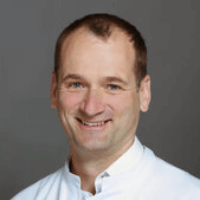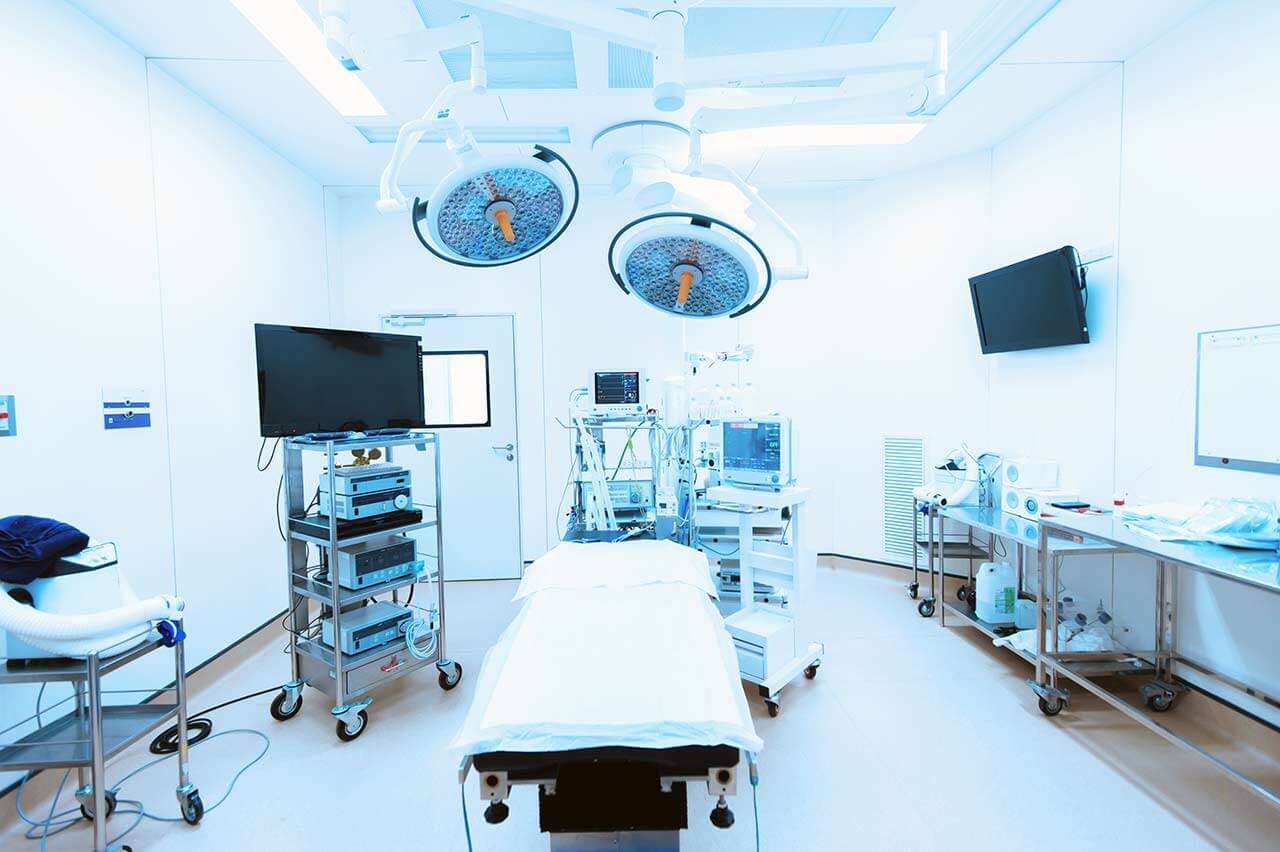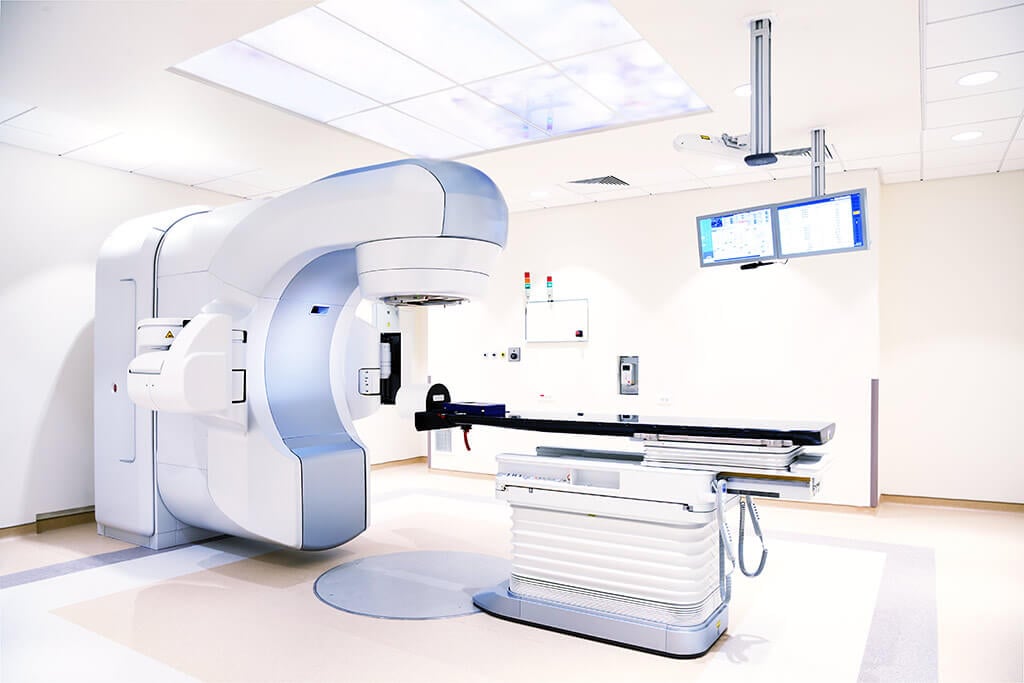
The program includes:
- Initial presentation in the clinic
- clinical history taking
- physical examination
- cardiac examination
- laboratory tests:
- complete blood count
- biochemical analysis of blood
- TSH-basal, fT3, fT4
- tumor markers
- inflammation indicators
- indicators blood coagulation
- measurement of arterial blood pressure
- ECG, echocardiography
- holter monitoring (24h)
- nursing services
- full hospital accommodation
- explanation of individual treatment planм
Required documents
- Medical records
- ECG (if available)
Service
You may also book:
 BookingHealth Price from:
BookingHealth Price from:
About the department
The Department of Cardiology at the Catholic Clinic Koblenz-Montabaur provides medical care to patients with cardiovascular diseases. The department has two high-tech Cardiac Catheterization Laboratories, in which an experienced team of cardiologists performs various interventional diagnostic and therapeutic procedures. The department is also proud of its modern diagnostic equipment for echocardiography, including transthoracic, transesophageal, 3D echocardiography, stress echocardiography, color Doppler echocardiography, electrocardiography, intravascular ultrasound scanning, cardiac CT and MRI scans, and other tests. As for the treatment, the department's therapeutic options include both conservative methods and interventional procedures, such as percutaneous transluminal angioplasty, high-frequency rotablation, stent implantation for coronary artery stenosis, balloon valvuloplasty, transcoronary ablation of septal hypertrophy, etc. The department also has a Chest Pain Unit certified by the German Cardiac Society (DGK). The department's doctors thus have all the necessary resources to provide patients suffering from heart pathologies of varying severity with top-class medical care. The department is headed by PD Dr. med. Felix Post.
The key interest for the department's team of cardiologists is performing interventional therapeutic procedures in the Cardiac Catheterization Laboratory. Interventional treatment for heart disease is a modern alternative to a full-fledged operation, which is associated with high risks to the patient's health. Interventional procedures are highly effective and also have a number of advantages over cardiac surgery, including a low trauma rate, high safety, low risks of infection, and rapid patient recovery after the completion of treatment. In addition, most interventions are performed under local anesthesia.
One of the most requested interventional procedures in the department's clinical practice is balloon valvuloplasty, which is indicated for patients with valvular stenosis. An endovascular intervention is performed using a percutaneous approach through blood vessels under echocardiography guidance. Balloon valvuloplasty uses special miniature instruments: a doctor inserts a catheter through an artery in the groin and directs it toward the affected heart valve. Upon reaching the narrowed section, the balloon device attached to the catheter inflates, resulting in the expansion of the heart valve lumen and the elimination of adhesions between the leaflets of the heart valve. Balloon valvuloplasty is performed under local anesthesia. The duration of the interventional procedure is about an hour. Within a few hours after valvuloplasty, the patient is under medical supervision. The very next day after the intervention, the patient can leave the clinic and return home.
The department's cardiologists also regularly demonstrate high success rates for high-frequency rotablation. This intervention is performed for coronary artery atherosclerosis. Angioplasty followed by stenting is used to treat pathology, but in the case of severe atherosclerosis, high-frequency rotablation is the optimal method of treatment. Today, this therapeutic manipulation allows many patients with coronary artery atherosclerosis to avoid coronary artery bypass grafting, which is an open, traumatic surgery. During high-frequency rotablation, the pathological focus is approached through a puncture in the area of the femoral or radial artery, so doctors do not need to make any incisions on the chest. Thus, the initial stage of the procedure is to perform a puncture of the femoral or radial artery, through which a special guiding catheter is delivered to the target area. At the next stage of the endovascular intervention, a special miniature drill (rotablator) with diamond coating is delivered to the coronary artery affected by atherosclerosis under imaging guidance. By performing fast rotational movements, the rotator breaks the atherosclerotic plaque into tiny fragments, due to which the blood vessel lumen expands. Microscopic particles of the destroyed atherosclerotic plaque are washed out of the coronary bed with the blood flow without posing any danger to human health. The final stage of high-frequency rotation is the implantation of a special stent to prevent recurrent coronary artery occlusion. The intervention takes about 2 hours. It should be noted that the performance of this procedure is quite complicated from a technical point of view. Therefore, it is offered only by leading Cardiology Centers in Europe and around the world. Recovery after such treatment occurs extremely quickly, and after a few days, the patient is discharged from the department.
Interventional procedures to close an atrial septal defect and a patent foramen ovale are also quite often performed in the Cardiac Catheterization Laboratories of the medical facility. Normally, the right and left sections of the heart are separated from each other by a special thin wall called a septum. With an atrial septal defect, the left and right atria communicate, causing blood from the left atrium to flow into the right and then into the right ventricle and pulmonary artery, causing stretching and overloading of these parts of the heart, which is associated with the risk of developing serious health problems. A patent foramen ovale is an opening in the atrial septum that usually closes on its own after birth. For the treatment of both of these pathologies, the department offers an interventional procedure to implant an occluder: a doctor makes a small skin incision or puncture in the femoral vein, through which a catheter with a folded occluder is inserted into the vein. The catheter is moved through the blood vessels to the desired area under imaging guidance, where the specialist implants the occluder, thereby eliminating the atrial septal defect or closing the patent foramen ovale. As a rule, the patient is discharged the next day after the procedure. Within six months after the intervention, aspirin is required to prevent thrombosis.
The department's range of medical services includes:
- Diagnostic options
- Classic echocardiography
- Transthoracic and transesophageal echocardiography
- Doppler ultrasonography (color Doppler echocardiography)
- Stress echocardiography using pharmaceuticals or ergometry
- 3D echocardiography
- Doppler ultrasound for examining blood vessels
- Ultrasound scanning of the abdomen and thyroid gland
- Puncture
- Stress electrocardiography
- Tilt table test
- Ambulatory blood pressure monitoring
- 24-hour Holter ECG monitoring
- Comprehensive laboratory diagnostics
- Cardiac imaging tests: cardiac CT and MRI scans
- Cardiac catheter-based examinations
- Intravascular ultrasound (IVUS)
- Fractional flow reserve measurement
- Catheter-based left and right heart rest and stress diagnostics
- Coronary angiography
- Myocardial biopsy
- Therapeutic options
- Drug therapy
- Interventional therapeutic procedures
- Percutaneous transluminal coronary angioplasty
- Balloon valvuloplasty
- High-frequency rotablation
- Interventional closure of a patent foramen ovale and an atrial septal defect with an occluder
- Transcatheter left atrial appendage closure
- Transcoronary ablation of septal hypertrophy
- Punctures for therapeutic purposes
- Interventional procedures on peripheral and neck blood vessels
- Other diagnostic and treatment methods
Curriculum vitae
Since June 2014, PD Dr. med. Felix Post has been the Head Physician of the Department of Cardiology at the Catholic Clinic Koblenz-Montabaur. Prior to this, the specialist worked as a Managing Senior Physician at the University Hospital Mainz (1996 - 2014). Dr. med. Felix Post received his medical education at the Johannes Gutenberg University Mainz (1990 - 1996). He is board certified in Cardiology and has additional qualifications in Interventional Cardiology, Intensive Care, and Sports Medicine.
During the worldwide COVID-19 pandemic, Dr. Post headed a task force and worked as Deputy Head of the COVID-19 Situation Center at the highest level. He is also a Member of the Ethics Committee of the Rhineland-Palatinate Medical Association. He was a doctor on the 1 FSV Mainz 05 team for many years.
Photo of the doctor: (c) Katholisches Klinikum Koblenz - Montabaur
About hospital
The Catholic Clinic Koblenz-Montabaur is a modern medical facility with an excellent reputation in Germany and abroad. The medical center is an academic clinic of the University Hospital Mainz, which gives patients the opportunity to take advantage of scientific advances and innovative treatments. The clinic has the widest possibilities for providing effective medical care to patients with both common and especially complex and rare pathologies. In December 2017, the clinic was certified in accordance with DIN EN ISO 9001:2015 standards, and in 2020, it was successfully recertified, which is a confirmation of the high quality of medical service. The clinic has 20 departments with 17 highly specialized centers integrated into them. The bed fund of the medical facility includes 657 beds. More than 32,000 inpatients and about 133,000 outpatients receive medical care here annually.
Many medical specialties are available at the clinic, including general and abdominal surgery, bariatric surgery, vascular surgery, thoracic surgery, cardiology, pulmonology, gynecology, urology, neurology, orthopedics, traumatology, radiology, nuclear medicine, and others. Each of the medical specialties is represented by an experienced team of doctors and nursing staff who do their best to restore the patient's health. Doctors of various medical fields work in close cooperation, which allows for an interdisciplinary approach to solving health problems.
The pride of the clinic is the advanced technical base, which plays an important role in accurate examinations and effective treatment. For example, the operating rooms at the clinic are equipped in accordance with the current requirements of European medicine, due to which most surgical interventions are performed using sparing techniques, including laser surgery, video-assisted thoracoscopic surgery, arthroscopy, endovascular and hybrid surgical techniques, etc.
Despite the clinic's high-tech infrastructure, there is an atmosphere of understanding, sympathy, and respect for the patient. The medical team shows a humane attitude towards patients and takes care of their comfort throughout the entire period of treatment. Doctors devote enough time to personal communication with patients, which makes it possible to take into account their individual needs and wishes during the therapeutic process.
Photo: (с) depositphotos
Accommodation in hospital
Patients rooms
The patients of the Catholic Clinic Koblenz-Montabaur live in comfortable single and double rooms with light colors and modern design. Each patient room has an ensuite bathroom with a shower and a toilet. The furnishings of a standard patient room include an automatically adjustable bed, a bedside table, a wardrobe, a table and chairs for receiving visitors, and a TV. The telephone is provided for a fee. Wi-Fi is available upon request.
The clinic also offers enhanced comfort rooms corresponding to the level of a five-star hotel. These patient rooms are more spacious and have a sophisticated design. The bathroom of the enhanced comfort rooms has a set of toiletries, changeable towels, and a bathrobe.
Meals and Menus
The patient and the accompanying person can choose meals from three menus daily. If, for some reason, you do not eat all the foods, you will be offered an individual menu. Please inform the nursing staff of your dietary preferences prior to treatment.
Patients living in enhanced comfort rooms are additionally offered free soft drinks, coffee, tea, desserts, and fresh fruits.
Further details
Standard rooms include:
Religion
A Catholic liturgy is held every Sunday morning in the church at the clinic. The divine liturgy is also broadcast on the clinic's internal TV channel.
Accompanying person
Your accompanying person may stay with you in your patient room or at the hotel of your choice during the inpatient program.
Hotel
You may stay at the hotel of your choice during the outpatient program. Our managers will support you for selecting the best option.





